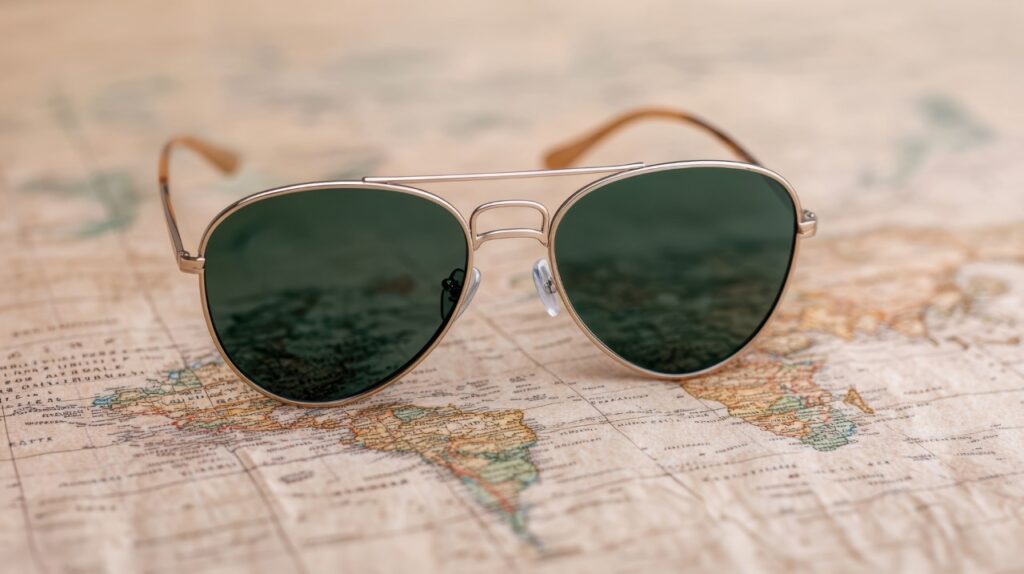
Travelling always seems straightforward in theory: write a list, tick things off, close the suitcase. Yet the reality often looks different. No matter how much planning goes into it, small essentials have a way of slipping through the cracks. The thought usually strikes halfway to the airport or, worse, the first morning abroad: what am I forgetting to pack? It’s the question that nags travellers everywhere.
The answer is rarely obvious, and while you can usually buy replacements, wasting time and money in a foreign city isn’t the way most people want to begin their trip. Some items simply aren’t replaceable on the go either, which makes foresight crucial. With that in mind, here are the ten most commonly forgotten travel essentials – items that deserve a permanent place on every packing list.
Why Do People Forget The Basics?
Part of the problem is psychological. Travellers tend to focus on the big, dramatic elements – tickets, passports, hotel confirmations – because these are non-negotiable. But that same urgency makes the smaller, day-to-day items seem trivial, at least until they’re missing.
Not only is this an inconvenience, but it can also disrupt the rhythm of your trip. Forget a phone charger and suddenly you’re rationing battery life. Overlook a travel adaptor and you’re left with dead electronics. It’s these seemingly minor mistakes that snowball into genuine travel headaches.
1. Chargers And Adaptors
Phones, cameras, tablets – they all need power. Yet chargers are among the most frequently abandoned items. Adapters are equally problematic, especially when moving between regions with different sockets. The solution is simple but often ignored: pack spares. Having a universal adaptor ready in your bag prevents late-night hunts for overpriced replacements.
2. Medicines And Prescriptions
It’s one thing to forget a toothbrush, quite another to leave behind prescription medication. Pharmacies abroad may not stock what you need, and even if they do, language barriers complicate the process. A good rule is to pack at least two days’ worth of extra doses. That way, delays or lost luggage won’t immediately put your health at risk.
3. Travel Documents Copies
Yes, you’ll remember your passport. But copies – digital and physical – often get overlooked. If your original documents are stolen, these backups make dealing with embassies and airlines far easier. Not only is this a safety net, but it also reduces stress in what could otherwise be a chaotic situation.
4. Toiletries Beyond The Obvious
Most people remember toothbrushes. Few remember nail clippers, tweezers, or even deodorant. These aren’t glamorous items, but their absence is instantly noticeable. You can usually find substitutes abroad, but they’re never quite the same quality you’re used to.
5. First Aid Essentials
Plasters, antiseptic wipes, and basic painkillers take up almost no space yet are constantly forgotten. And while a small scrape might sound insignificant, having supplies at hand means you don’t waste half a day searching for a pharmacy. It’s especially important if your trip involves hiking or a wildlife experience in East Africa, where immediate access to a chemist may not be an option.
6. Sunglasses And Sun Protection

People assume they’ll buy these at their destination, but that doesn’t always work. Sunglasses bought in tourist markets often lack proper UV protection, and sunburn can set in within hours. A reliable pair from home, alongside familiar sunscreen, saves both skin and money.
7. Snacks For Transit
Long layovers, unexpected delays, or simply the lack of decent food options at airports can make travel exhausting. Packing snacks isn’t about indulgence – it’s about survival. Protein bars, nuts, or even dried fruit can bridge the gap when mealtimes don’t line up with your schedule.
8. Reusable Water Bottle
Hydration often becomes an afterthought during travel. Disposable bottles are expensive and environmentally damaging, while not every location offers safe tap water. A reusable bottle with a built-in filter solves both issues. Yet it’s one of those items people swear they’ll remember, then leave on the kitchen counter.
9. Weather-Specific Gear
Umbrellas, lightweight rain jackets, or even warmer layers. Travellers frequently underestimate weather abroad, assuming forecasts will be perfect. But climates shift, mountain regions cool rapidly at night, and coastal winds cut deeper than expected. Not only is forgotten gear uncomfortable, but it forces unplanned purchases that eat into your budget.
10. The Small But Critical Extras
This is where the forgotten pile usually grows: earplugs, sleep masks, headphones, even pens for filling in customs forms. None of these matter much at home, but during a flight or in a noisy hotel they become indispensable. The irony is they’re small enough to slip into any pocket – you just have to remember them.
How To Avoid Forgetting
It’s tempting to believe memory alone will keep you organised, but that’s rarely the case. A written guide remains the single most effective safeguard; a complete travel checklist ensures every item is physically confirmed before departure. More importantly, it forces you to think through your trip in advance – what you’ll need for the flight, the hotel, excursions, and emergencies.
- Start packing two days in advance rather than the night before
- Keep essentials like medication and chargers in a separate pouch
- Cross-reference your list with your itinerary to anticipate special needs
- Place documents and backups in both digital and hard-copy formats
That small amount of discipline saves time, stress, and money later on.
Closing Thoughts
Forgetting items while travelling isn’t a personal flaw – it’s human nature. Our brains prioritise the big, obvious things and assume the smaller details will fall into place. Unfortunately, they rarely do. The good news is that once you recognise the patterns, it becomes easier to break them. A bit of preparation, backed by a proper checklist, transforms “what am I forgetting to pack” from a nagging worry into a manageable process. And once that weight is lifted, the focus shifts where it belongs: the journey itself.


